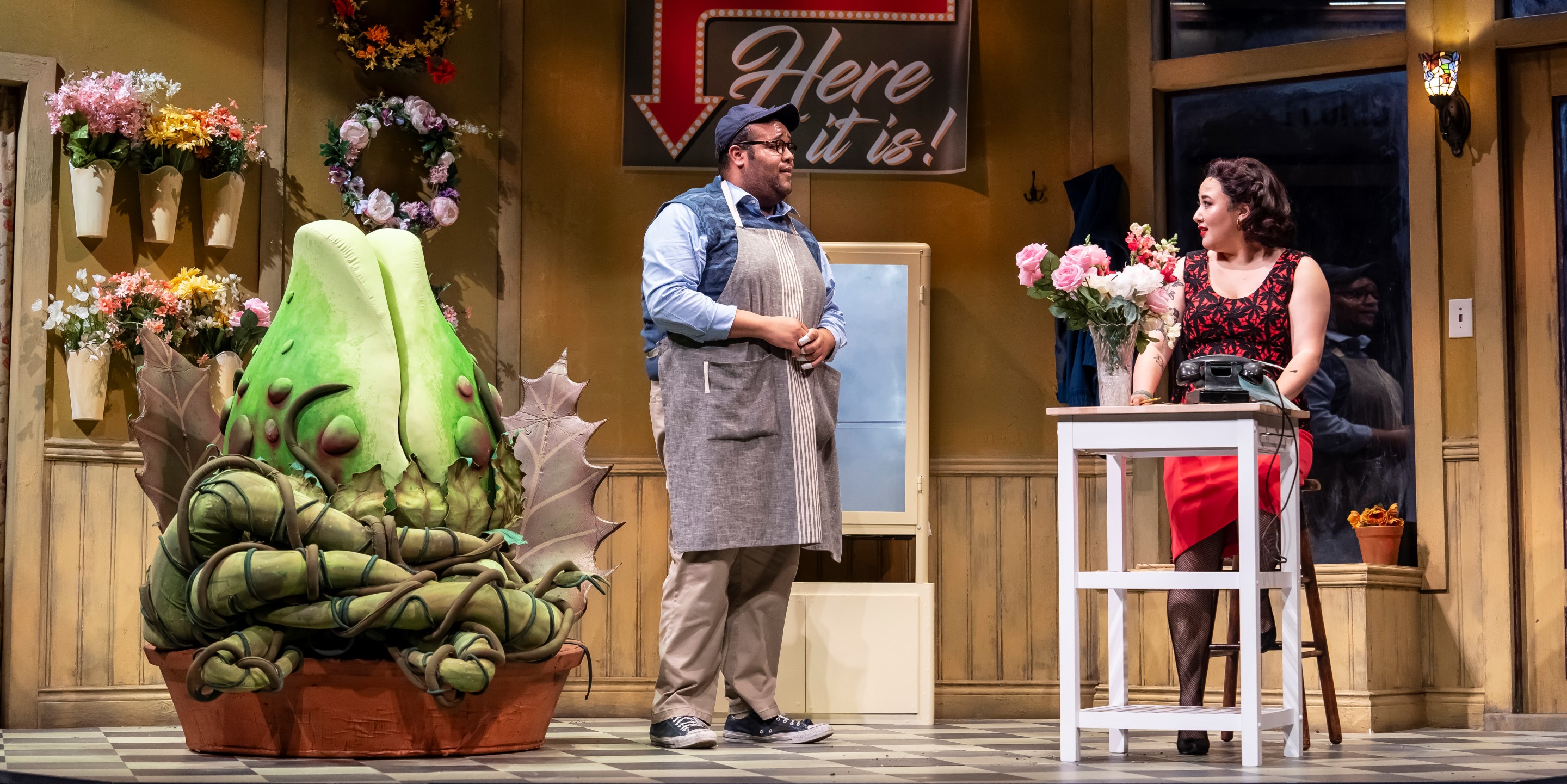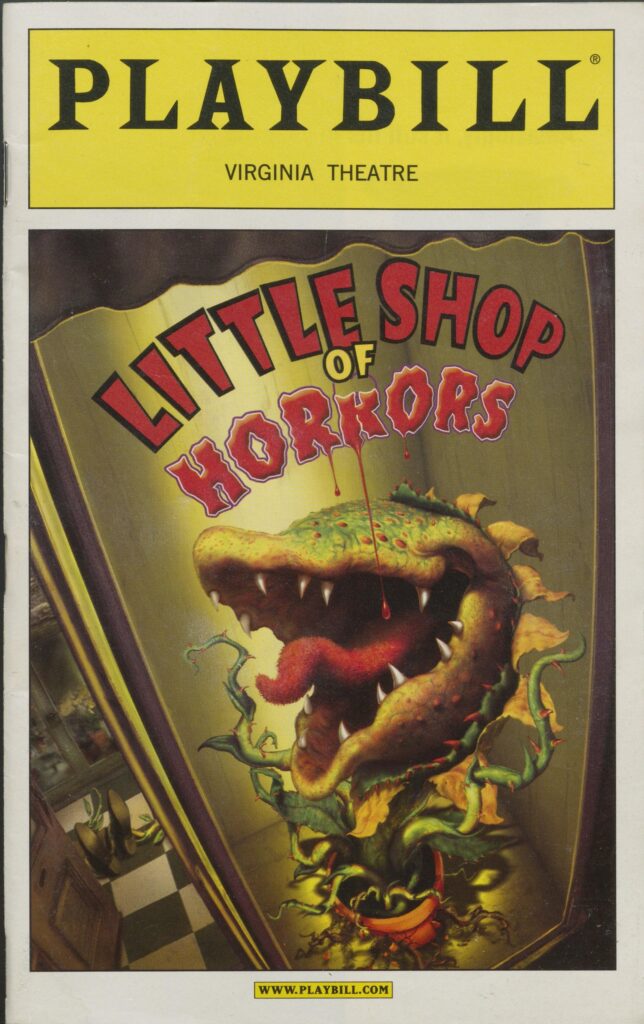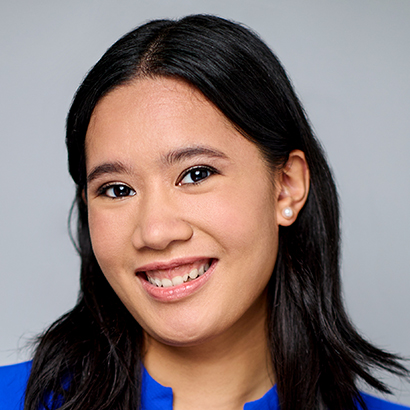
Little Shop, Big History
Explore the history of Little Shop from book to movie to musical, and how it impacted the American musical theatre canon, in this month’s blog post. This includes a look into the Howard Ashman Papers at the Library of Congress, which features original documents on his collaborations with Alan Menken.
“There were a lot of musicals and cabaret pieces in the late 70s and early 80s that were playing with the interface of apocalyptic, end-of-the-world, tacky horror movies and pop music. But Howard’s insistence that we remain truly heartfelt and knowing, yet not getting into self- mockery, was the key to what made us different.” –Alan Menken, Playbill
Book to Movie to Musical: A Brief History
Little Shop of Horrors’ origins date back to 1894, with English writer H.G. Wells’s curious short story The Flowering of the Strange Orchid, about a man-eating carnivorous plant. In 1932, John Collier wrote a dark comedy version called Green Thoughts, and in 1956, sci-fi writer Arthur C. Clarke wrote his take on the story with The Reluctant Orchid, which made the plant’s ominous intentions clear.
Both stories inspired original screenwriter Charles B. Griffith, who incorporated farce and humor into the horror story, with American actor/filmmaker/producer/film distributor Roger Corman’s B-movie film The Passionate People Eater. Corman shot the film in two days and one night, on the set of another B-movie, Bucket of Blood. It entered public domain as The Little Shop of Horrors.
In 1982, Howard Ashman and Alan Menken adapted the film into what we know now as the beloved musical Little Shop of Horrors – which began Off-Off-Broadway at the WPA Theatre and transferred to the Orpheum Theatre Off-Broadway. It was adapted back into a movie directed by Frank Oz in 1986, with Rick Moranis and Ellen Greene, and a “happier” ending than the musical after test audiences found the original musical’s ending too sad for a movie.

Major productions of Little Shop include the 2003 Broadway production – over 20 years after its Off–Broadway debut and considered a “revival” at the Tony Awards despite being the Broadway debut – and the current Off–Broadway revival that has been running in New York since 2019. Recently, it was announced that Roger Corman, Joe Dante and Brad Krevoy are working on a reboot series titled Little Shop of Halloween Horrors.
Little Shop has been a favorite of regional theatres for decades. In recent times, a 2019 production at the Pasadena Playhouse (where Ford’s Theatre Senior Artistic Advisor Sheldon Epps formerly served as Artistic Director, prior to this production) starred George Salazar as Seymour, MJ Rodriguez as Audrey and Amber Riley as Audrey II. On the Ford’s stage, audiences last saw this musical in 2010. Now, with Kevin S. McAllister’s take on the show here at Ford’s, we see representation at its finest in a production with inspired casting, without saying it “in capital letters.”
Little Shop of Horrors in the American Musical Theatre Canon
Little Shop is one of a kind, as the one of the first “horror comedies” in musical theatre, setting the standard to combine the macabre with humor when musicalizing horror stories. Perhaps the only other musical with a similar goal that preceded it was Rocky Horror Show, which has a similar spirit. And it still stands as one of the only “horror comedy rock musicals.”
It rocked the world in terms of making Off-Broadway a viable commercial venture, originating from the WPA Theatre Off-Off-Broadway, where Ashman was the Artistic Director, and the Orpheum Theatre Off-Broadway. At the time of its original Off-Broadway run, it broke box office records as the highest grossing Off-Broadway musical.
Its musical style is worthy of note: Howard Ashman and Alan Menken originally said that it is meant to be “the dark side of Grease, using doo-wop, R&B and rock-and-roll as the main vocabulary for the score.” Yet the score still has classic musical theatre moments, like the patter of “Closed for Renovation” and “Call Back in the Morning,” and the sweet “I Want” song of “Somewhere That’s Green.”
Little Shop also came about around the time that Ashman and Menken’s Disney careers were in development. After the 1986 Little Shop of Horrors film, they were tapped to contribute music to Oliver and Company, followed by The Little Mermaid – which sparked the Disney Renaissance that popularized musical movies for audiences of all ages, for generations to come. This show and its creators have made an indelible impact on contemporary musical theatre and what it can sound like – from musicals that use rock, R&B and doo-wop styles, to the musicals that take inspiration from the Disney tradition of knowing exactly how to draw out emotion through song.
Did You Know? Trivia About Little Shop and Its Creators
- During the original 1982 production, Stephen Sondheim sent a note of congratulations to Howard Ashman that is a rare gem of the Library of Congress, applauding Ashman for his “style, wit and delight. The more I think about it, the more I like it.”
- A note on “I Want” songs: Ashman and Menken’s “Somewhere That’s Green” and “Part of Your World” from The Little Mermaid have a lot of similarities. They have recitative at the top, have similar structure of having choruses and one bridge, and end very similarly (“out of the sea” / “far from Skid Row”).
- Yes, the dates in the song “Little Shop of Horrors” changed: In the original 1982 script of the musical all the way up to the 2003 Broadway version, the lyric is “The 21st Day of September.” In the movie only, right from the 1984 Frank Oz draft of the screenplay, the lyric is “The 23rd Day of December.”
- Did you know that Alan Menken composed music for a television documentary called Lincoln in 1992, celebrating our nation’s 16th president with appearances from a stacked cast that included James Earl Jones, Jason Robards, Glenn Close, Arnold Schwarzenegger and Oprah Winfrey? Explore the music of that documentary here.
Little Shop of Horrors runs through May 18 at Ford’s Theatre. Get tickets here.
Explore the Howard Ashman Collection and refer to the Finding Aid here.
For a deeper dive into the movie’s history, check out our digital program, where Ford’s Theatre Director of Artistic Programming José Carrasquillo takes audiences through that timeline.
Daniella Ignacio is the Communications Manager at Ford’s Theatre.

